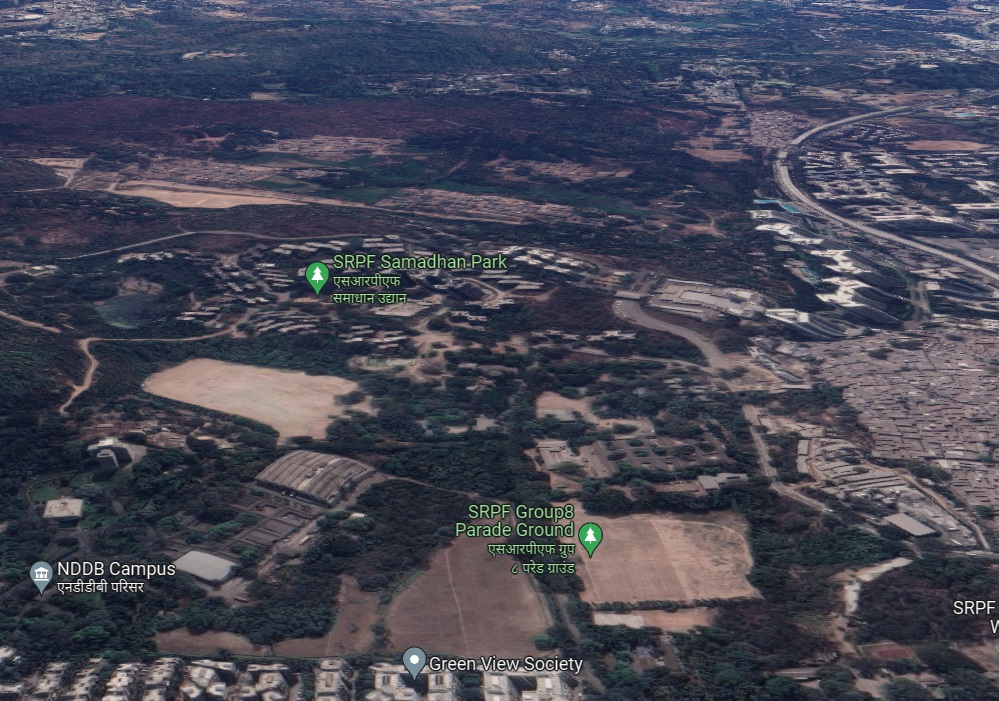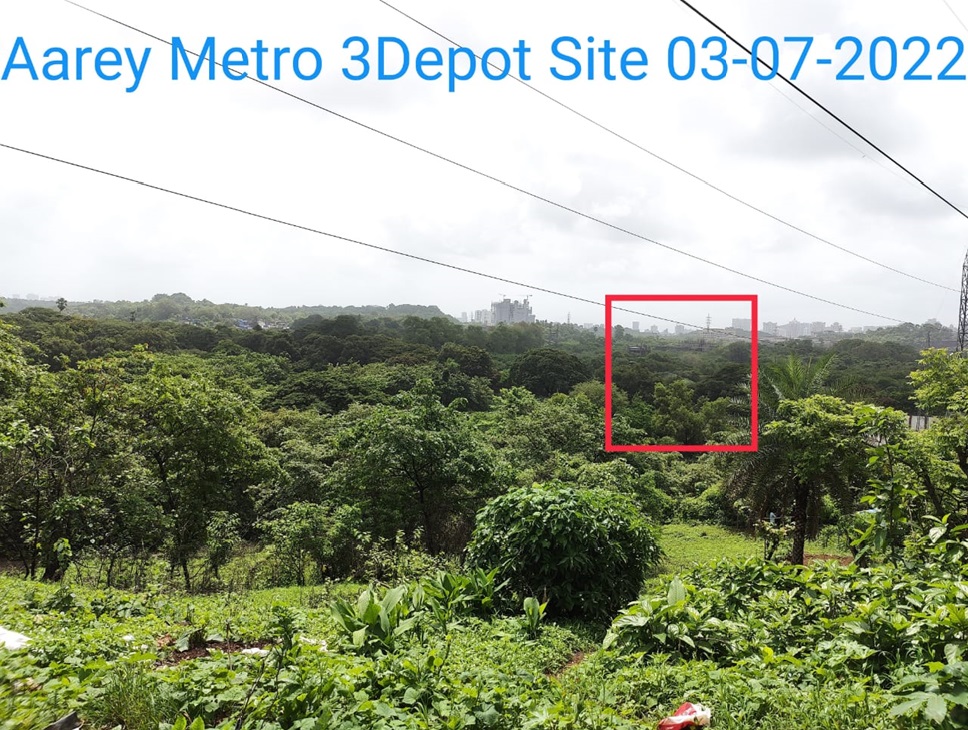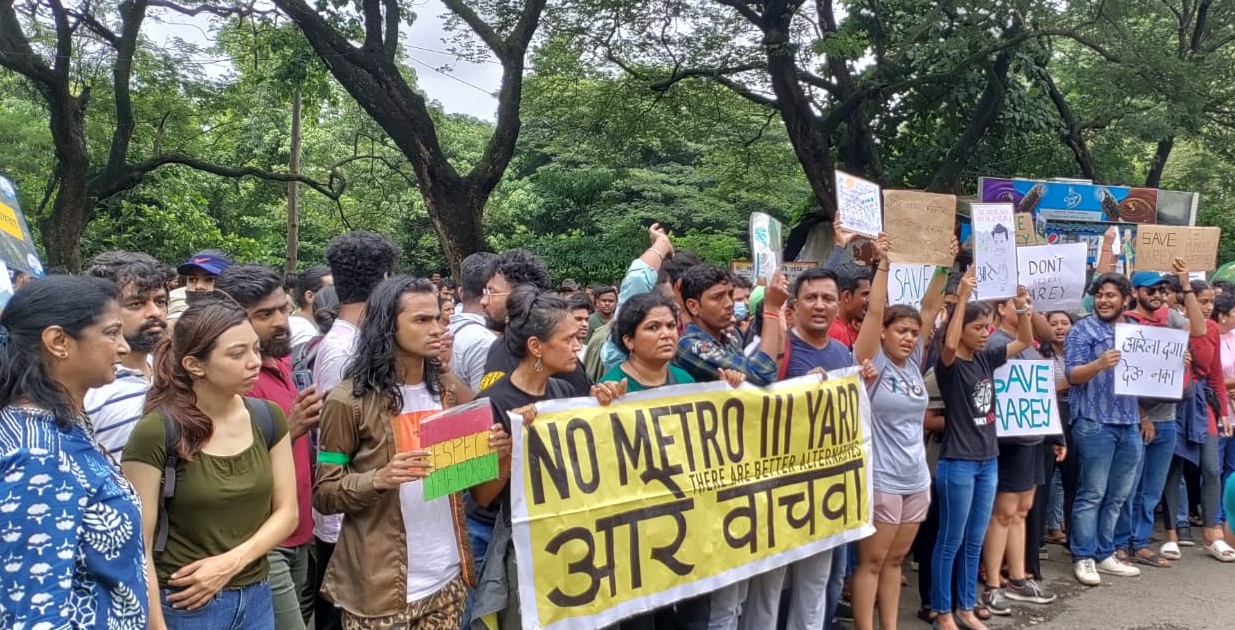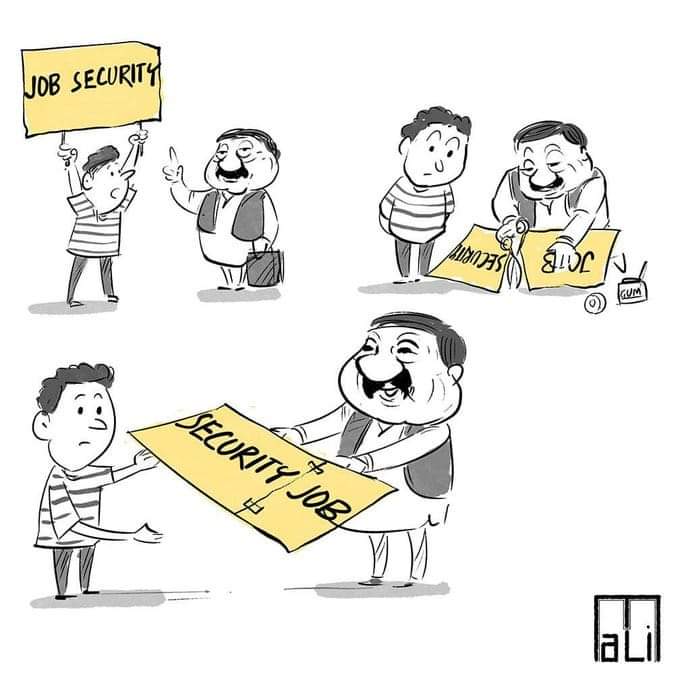https://www.youtube.com/watch?v=BiJDvgPusco बदनामी और हमले कर सरकार जन-आंदोलनों को रोकना चाहती है" मेधा पाटकर से बातचीत
Sep 4, 2022 This tirade against social movements is to cement vote bank. part of elections..
Medha Patkar was wrong on Narmada project https://timesofindia.indiatimes.com/blogs/Swaminomics/medha-patkar-was-wrong-on-narmada-project/ September 4, 2022, Patkar said all micro-level struggles are key to building a macro-level agitation that questions the very paradigm of development at all levels. “Chunikaka said gaon ki zamin, gaon ki hai — but is it happening now? Do the villagers have control over the jal, jungle, zameen being given away to the corporate sector, the mining mafia? Where is the three-tier Panchayati Raj system?” Patkar said, and added there “is no alternative to people’s movements.”
When Narendra Modi Exhorted 'Andolanjivis' to Rise Up Against the Government in 1974 https://thewire.in/politics/narendra-modi-andolanjivis-protest-1974-message A message written by the prime minister in his 20s provides valuable advice to the protesters of today but also represents the drastic swing in his opinion of protests. The Modi government’s second term has faced pan-India protests opposing controversial policy decisions such as the Citizenship Amendment Act (CAA) and the three farm laws.
‘Yes, We Are Andolanjeevi, You Have Forced Us’: Medha Patkar https://thewire.in/rights/andolanjeevi-medha-patkar-sardar-sarovar-narmada-project-dam-water-crisis
'Today’s centralised policies are pushing the marginalised communities further to the margins, squeezing all options for the poor but to take to the streets.'
“No Alternative to People’s Movements,” Says Internationally Acclaimed Human Rights Activist Medha Patkar
https://indiatomorrow.net/2021/12/22/no-alternative-to-peoples-movements-says-internationally-acclaimed-human-rights-activist-medha-patkar/ December 22, 2021 - In a sharp snub to Prime Minister Narendra Modi’s ‘andolanjeevi’ taunt at those leading people’s movements in the country, the firebrand activist declared in her true inimitable style, “Yes, we are andolanjeevi because today’s centralized policies are pushing the marginalized communities further to the margins, squeezing all options for the poor but to take to the streets.”
In another pointed rebuff on the charges levelled by the present government about NGOs receiving foreign funds, Patkar retorted, “They allege we receive foreign funding for our agitations while I had returned even my award money, but there is huge money coming into the country to implement the so-called PPP (Private-Public-Partnership) model policies.”
Launching a frontal attack, she questioned, “How much foreign funds came into the PM Cares Fund and for disaster management? Where is it?”
According to Patkar, the government, on the one hand, claimed had no money for the tribals, the landless, the poor, and the farmers. “But this very government has money for Central Vista, for Sardar Patel statue and waiving of corporate NPAs to the tune of Rs68,000cr.”
Kishore Saint was groomed in oral tradition by his grandmother in punjabi tradition as well as mid eastern folklore. He schooled in a Madrasa, and Convent and a Gurukul. More importantly being on the other side of the border, he was in the midst of the partition riots on both sides of the border. As a student and then a teacher in Kenya and in the UK, in the midst of the 60s youth movements, he felt the yearning for public work and the call to come back to India. This he says in his own words in this segment. https://youtu.be/QnD1KajyMgI
Now that an Adivasi is president, will Big Media finally report on Adivasi issues? By Kalpana Sharma 28 Jul, 2022 https://www.newslaundry.com/2022/07/28/now-that-an-adivasi-is-president-will-big-media-finally-report-on-adivasi-issues
Droupadi Murmu’s election should be more than a temporary news peg, given most readers and viewers know nothing of Adivasi struggles or culture...
One of the reasons for this was the inability of jailed Adivasis to get adequate legal support. JagLAG, a group that did provide such support, was hounded out of Bastar.
Apart from Bastar, which comes into view whenever there is a so-called “encounter” between security forces and Maoists, there are struggles being waged by Adivasi groups in many other parts of the country, including Murmu’s home state of Odisha. Remember the extraordinary campaign by the Dongria Kondh tribe in Niyamgiri against the bauxite mine of the powerful business house Vedanta? Despite their success, their problems have not ended yet. Similar struggles continue in Jharkhand where local communities are challenging either infrastructure or the release of their lands for mining. Yet there is little written about these struggles except in alternative or non-mainstream media.
How can any media do this given the power the State has to intimidate media houses through their business interests?
How, given the latest Supreme Court ruling on the Prevention of Money Laundering Act and the enhanced powers of the Enforcement Directorate, can any media house attempting to be “independent” or even “honest” survive in a regime where such laws and the ED have been weaponised to deal with all kinds of dissidence?
And finally how, when even those “independent” journalists who are doing their jobs of gathering facts and reporting them are either arrested, as in the recent case of Mohammed Zubair and earlier Siddique Kappan or Kashmiri journalists Asif Sultan, Fahad Shah and Sajad Gul? Or they are stopped from pursuing their professional commitments, as in the recent case of Aakash Hassan, a Kashmiri journalist stopped from going on a reporting assignment to Sri Lanka, and earlier the Pulitzer prize winning Kashmiri photographer Sana Irshad Mattoo, who was not permitted to board a flight to Paris without being given any reason.
This is what will happen to the new area marked for the metro in aarey. This is the south east of Aarey.
The central portion was given for the SRP camp. And because of the high tension wire the electricity dept got controll of the forests under the power lines, Now they have their offices. Of course the property is now privatised after Addani took over the electricity distribution, for which they have their office space touching the highway to the west.. Now the tall buildings in the centre come up to replace the lowly structures as soon as the new privatised airport, changes the directions of their main take off funnel..and allows tall building in the non-tunnel area which cuts across aarey, making it a prime location for development, SRA, future premium buildings etc. The tall buildings on the right of this picture is in a location which was 'alienated' for a children's park and housed a huge amusement party till just two decades ago. The park was closed down as it was not financially viable and low and behold the oberoi buildings have come up and continue to come up along the south side of the original aarey left lung of Mumbai.
The west side ie from where this picture in taken was carved out for a transit camp, which became permanent and went in for MHADA redevelopment. 
Segment as seen in google maps

And this is what is look from the other side today..

(Pix-Aarey Conservation Group )
Where is the Laxman Rekha? Can we draw one now?

Esther Duflo: Nobel Prize banquet speech Dec 16, 2019 https://youtu.be/JjE6ZK8vvcE?t=46
Poverty..
The British Academy @BritishAcademy_ https://twitter.com/BritishAcademy_/status/1544344123037339648
"Duflo believes that politicians could implement ambitious climate action without provoking public dissent by making it part of a wider programme of wealth redistribution."
Esther Duflo: Social experiments to fight poverty
Esther Duflo and Abhijit Banerjee | After Poor Economics
55,163 views Sep 26, 2017 A radical rethinking of the way to fight global poverty.
Abhijit Banerjee 7:45
Esther Duflo 32:00
https://www.ubscenter.uzh.ch/en/news_...
For more than fifteen years the founders of the Abdul Latif Jameel Poverty Action Lab, Abhijit Banerjee (MIT) and Esther Duflo (MIT), have worked with the poor in dozens of countries spanning five continents, trying to understand the specific problems that come with poverty and to find proven solutions. Through a careful analysis of a very rich body of evidence, including the hundreds of randomized control trials that Banerjee and Duflo’s lab has pioneered, they show why the poor, despite having the same desires and abilities as anyone else, end up with entirely different lives. Their mission is to reduce poverty by ensuring that policy is informed by scientific evidence.
https://www.povertyactionlab.org
This keynote lecture was made possible by the Department of Economics at the University of Zurich alongside its partners UBS Center for Economics in Society and Swiss Re
Google Is Not What It Seems by Julian Assange https://archive.ph/UDDBC#selection-693.93-693.365
Since at least the 1970s, authentic actors like unions and churches have folded under a sustained assault by free-market statism, transforming “civil society” into a buyer’s market for political factions and corporate interests looking to exert influence at arm’s length.
The civil society conference circuit—which flies developing-world activists across the globe hundreds of times a year to bless the unholy union between “government and private stakeholders” at geopoliticized events like the “Stockholm Internet Forum”—simply could not exist if it were not blasted with millions of dollars in political funding annually.
Nobody wants to acknowledge that Google has grown big and bad. But it has. Schmidt’s tenure as CEO saw Google integrate with the shadiest of US power structures as it expanded into a geographically invasive megacorporation. But Google has always been comfortable with this proximity. Long before company founders Larry Page and Sergey Brin hired Schmidt in 2001, their initial research upon which Google was based had been partly funded by the Defense Advanced Research Projects Agency (DARPA).48 And even as Schmidt’s Google developed an image as the overly friendly giant of global tech, it was building a close relationship with the intelligence community.
As the self-described “radical centrist”65 New York Times columnist Tom Friedman wrote in 1999, sometimes it is not enough to leave the global dominance of American tech corporations to something as mercurial as “the free market”:
The hidden hand of the market will never work without a hidden fist. McDonald’s cannot flourish without McDonnell Douglas, the designer of the F-15. And the hidden fist that keeps the world safe for Silicon Valley’s technologies to flourish is called the US Army, Air Force, Navy and Marine Corps.66
If the future of the internet is to be Google, that should be of serious concern to people all over the world—in Latin America, East and Southeast Asia, the Indian subcontinent, the Middle East, sub-Saharan Africa, the former Soviet Union, and even in Europe—for whom the internet embodies the promise of an alternative to US cultural, economic, and strategic hegemony.71
A “don’t be evil” empire is still an empire.
Anonymous Complainant Targeting Zubair Tweet Linked to Tek Fog App, BJYM Leader in Gujarat https://thewire.in/tekfog/altnews.html Ayushman Kaul, Naomi Barton and Devesh Kumar / 02 July 2022 The Wire's investigation into a network of 757 Twitter accounts used to mount attacks against AltNews found that the recovery email ID for the anonymous Twitter handle that sparked the original FIR was
The prosecution failed to reveal the account holder’s identity in court, but the Indian Express reported that the police later sent Twitter a notice under Section 91 of Criminal Procedure Code on the evening of June 29, asking them to provide details of the account @balajikijaiin that goes by the name ‘Hanuman Bhakt’.
Investigations by The Wire have uncovered a network of 757 accounts linked to Ahir that have attempted – since 2018 – to incriminate the fact-checker alongside Pratik Sinha, co-founder at AltNews, by highlighting and misconstruing old tweets uploaded by the two journalists to portray them as “Hinduphobic” and then tagging the local authorities in order to have the two journalists arrested for supposedly hurting religious sentiments.
In particular, this network also included eight replica accounts of @balajikijaiin – the anonymous account whose complaint formed the basis of Zubair’s arrest by the Delhi police. Each of these eight accounts exhibited similar properties – profile picture, tweets and usernames – and employed the same modus operandi to target the AltNews co-founders on Twitter. While five of these eight replica accounts have been deleted, two other accounts - @balajikijain and @HanumanBhakt101 - remain active at the time of analysis.
Complementing this activity was a larger network of 18,364 accounts which were also used to trend other hashtags – #ArrestZubair, #ArrestMohamedZubair and #ArrestBlasphemerMdZubair – that targeted the journalist.
In June 2021, the Tek Fog network had 77,800 users, many of which became inactive following the publication of our three part investigation. The activation of this cluster to manipulate public perception around the Zubair case is the first time in the last six months that the use of this network has been detected.
The original @balajikijaiin was the complainant cited in the Delhi Police’s case against Mohammed Zubair. The account was temporarily disabled after the public outcry generated by the case; when it returned, it proceeded to make a similar tweet against the co-founder of AltNews, Pratik Sinha, targeting out a tweet of his from seven years ago and asking for police action to be taken against him.
Today we commemorate the 50th birth anniversary of the Association for Protection of Democratic Rights (APDR) of West Bengal which is one of the oldest human rights organisations in India. A truly landmark day in the history of the civil liberties movement in India. Positive that today inspite of all ups and down it is shimmering it’s torch .
https://countercurrents.org/2022/06/salute-association-for-democratic-rights-apdr-on-turning-50/
by Harsh Thakore
26/06/2022
Sado-Monetarism The Role of the Federal Reserve System in Keeping Wages Low https://monthlyreview.org/2012/04/01/sado-monetarism/
by Michael Perelman Neoclassical economists are concerned about the workers’ transactions with capital, but they care little about the workers themselves or their working conditions. Workers merely accept a wage bargain, go to work, and finally collect a wage.
The Federal Reserve serves the needs of the powerful. Its role is to protect capital against the interests of labor. In order to maintain labor discipline, the Federal Reserve Board is entrusted with the task of maintaining a level of unemployment high enough to keep workers fearful of losing their jobs. Workers’ acceptance of mediocre jobs at modest wages paid handsome dividends for business, creating more demand (through debt), while making workers even more fearful of losing their jobs. In addition, workers’ insecurity also meant that they were less likely to quit in search of better employment, allowing employers to avoid the costs of recruiting and retraining replacement workers. Perhaps best of all, employers could enjoy this bounty without having to call upon the Federal Reserve to slow down the economy.
https://www.levyinstitute.org/pubs/wp_511.pdf The Fed’s Real Reaction Function Monetary Policy, Inflation, Unemployment, Inequality—and Presidential Politics* by James K. Galbraith Olivier Giovannoni Ann J. Russo August 2007 Does monetary policy influence inequality? More specifically, does information contained in the term structure of interest rates extend beyond inflation and unemployment to a measure of inequality in earnings? The answer is that it does.
Agnipath Is A Marketing Trick In Which Job Destruction Is Being Sold As Job Creation https://thewire.in/government/agnipath-scheme-job-destruction-creation-modi-government Even though the larger economic motives and social imperatives behind the Agnipath project have not been understood in its entirety by the larger public, the impact of the scheme which bars candidates above 21 years and renders 75% of recruits jobless after four years without pension benefits has triggered the anger of those who were desperately waiting for the call for recruitment.
The Agnipath shock comes months after the Railway Recruitment Board changed its eligibility qualification, leaving lakhs of aspirants high and dry. With the agricultural and unorganised sectors, which provide employment to the stay-behinds, heavily hit by demonetisation, goods and services tax and later COVID-19 and Modi’s lockdowns, north Indian youth pinned all their hopes on army recruitment. But Agnipath has come as a bolt from the blue.
India is facing a great unemployment crisis and Modi has aggravated the problem with his disastrous economic policies and now his neoliberal recruitment policies.
Agnipath: One more disaster in the making https://www.cenfa.org/agnipath-one-more-disaster-in-the-making/ By Prasanna Mohanty | June 20, 2022
The Modi government is known for top-down, arbitrary policymaking sans consultation, evidence and democratic checks and balances. The “Agnipath” scheme is the latest on the list.
There was no discussion on it inside or outside the Parliament – more worrying when it has serious “transformative” consequences. Defence forces apparently accepted a political decision imposed on them without due process and not knowing what the consequences would be for the professionalism of armed forces, national security or other implications.
India went through such panic during the demonetisation of 2016, as well as the pandemic lockdown – both announced without consultations and due processes. Both caused immense avoidable pain to the people and economy.
The propensity to create man-made disasters should have been abjured after these two experiences, but the government seems immune to lessons.
Centre's Agnipath Scheme: A Test by Fire – Need for Reforms and Resolutions https://www.thequint.com/voices/opinion/agnipath-scheme-opinion-concerns-soldiers-recruitment-scheme
Maj Navdeep Singh 19 Jun 2022, I have never been against Short Service Engagement in the military, including at the jawan level, provided it is well-rounded and balances out individual aspirations and organisational requirements while synchronously maintaining regular permanent recruitment, even if on a gradually declining scale. ..I am conscious that a ballooning recurring pension bill somehow needs to be tamed for future benefit.. For the country's good, unpopular decisions need to be taken, but they should preferably be implemented delicately.
Alternatives to Save the Burden of Pensions on the Exchequer
Needless to state, it is not that there were no ingenious methods available to tame the pension bill. Easily, as a pilot project, or as a small percentage of recruitments, a Short Service Engagement of 5 years extendable (at the volition of the soldier) to 10 years could have been introduced on the NPS format.
It would have resulted in better financial protection under the NPS, payment of gratuity, grant of ex-serviceman status (and hence availability of existing ex-serviceman reservation), admissibility of proper disability pension in case of disability (which has already been extended by the government to civilian employees on NPS), family pension in case of death and a much more softer churn towards a new recruitment policy.
- Agnipath: Path of Militarisation of Society?
- ‘Paid news’ and ‘paid social media’ in India: looking for legal attention
- The threat of large-scale famine
- Post COVID 2nd Wave impact on Vulnerable Communities: Household Survey Anna Adhikar Abiyan
- Human Future in the Digital Era – Whence society? Whence humanity ?
- Need a whistle blower protection law
- Government speak on Sedition
- Covid-19: When will the profiteering of private hospitals be curbed?
- Why we need feminist leadership for climate justice
- Hasdeo Forests & Adani
- Ahimsa Conversations over two years
- Where are we heading?
- Prema Gopalan: A Tribute
- Supporters of the Three Farm Laws? Statistics ?
- Merit v/s reservations SC judgement
- WESTERN STRATEGIC THINKERS WHO HAD WARNED OF UKRAINIAN CONFLICT
- Poverty, Hunger and Disability: The Missing Link
- Investigating Infrastructure: Ecology, Sustainability and Society
- ‘Indianisation’ of country’s legal system
- Indian Judiciary: Chalenges of Future
Page 9 of 16
